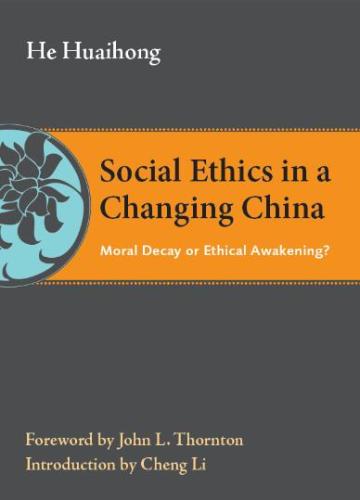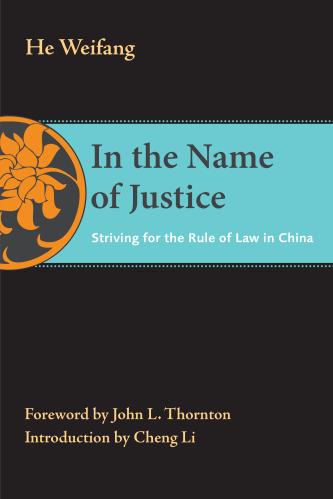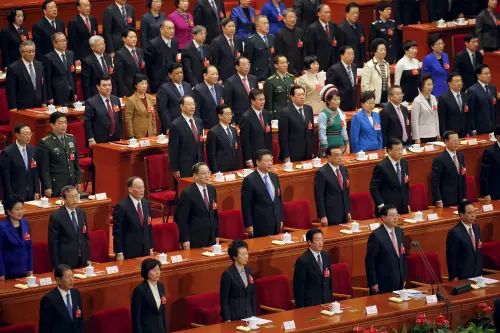Earlier this year, China’s State Council (its administrative body) adopted two new laws that stand to shape the future of Chinese civil society. The “Foreign NGO Law,” which has received the bulk of media attention in the United States, takes effect on January 1, 2017, and is aimed at regulating overseas organizations that operate in China. According to official Chinese sources, there are roughly 7,000 such organizations in the country today. By contrast, the “Charity Law” sets regulations for China’s domestic NGOs—which the country dubs “social organizations”—and took effect on September 1, 2016. Roughly 675,000 of these organizations are currently registered in China, with estimates on the number of unregistered social organizations reaching as high as 3 million.
On December 6, the John L. Thornton China Center at Brookings hosted an event focused on the state of NGOs in China. Experts on Chinese civil society shared their understanding of the situation on the ground in China. Jamie P. Horsley surveyed the evolving legal and policy framework for Chinese civil society development. Carolyn Hsu examined the explosion of grassroots NGO activity over the past 25 years and described how Chinese NGOs have survived and even flourished in an authoritarian environment. Rachel Stern analyzed the roles of Chinese lawyers as key actors in civil society and discussed progress and setbacks in their development over the last two years. Fang-Yu Chen reviewed the development of Taiwan’s dynamic civil society, including the implications of this year’s political transition on the island.
Together, these experts’ insights helped set expectations for the challenges and opportunities that foreign and domestic NGOs in China might face in the coming months and years as these two new laws are implemented. Below are key takeaways from each expert:
Regulatory Context and Overview of Chinese Civil Society Development
Jamie P. Horsley
As of January 1, 2017, overseas NGOs that wish to be active in China must register with the public security authorities and comply with new activity and funding restrictions and reporting obligations. In contrast, the new Charity Law and proposed revisions to State Council regulations relax registration and fundraising requirements for the majority of domestic NGOs.
The Central Committee of the Chinese Communist Party (CCP) reaffirmed in August the constructive role that Chinese NGOs can play: to convey the concerns of the people, participate in co-governance to address problems together with the government and the market, and deliver social services. However, Chinese NGOs must establish CCP branches and not endanger “national security” or “social morality.”
Liberalization of the domestic NGO regulatory environment mirrors broader governance initiatives. These include increased transparency, civic participation and adherence to law, and reforms to reduce government intervention in the market and society.
Despite the reduction of barriers to entry for market and civil society participants, Chinese authorities have strengthened ex-post regulation. Among the tools being used to make sure new participants do not endanger national security or violate public morality are: increased information disclosure about and reporting by companies and NGOs, an emerging government-managed social credit system that will penalize untrustworthy and illegal conduct, and strengthened CCP presence in all entities and organizations.
CCP General Secretary Xi Jinping has espoused a “cage of regulations” within which government and civil society must act. That regulatory cage has slowly expanded, suggesting a continued positive trajectory for the development of civil society in China, where the number of registered NGOs has been increasing at a rate of 10 percent annually. But in the current political climate of heightened security concerns and decreased tolerance for certain kinds of activism and expression, attempting to break free of the cage may incur increasingly harsh penalties.
Civil Society Strategies in an Authoritarian State: How Do NGOs Flourish in China?
Carolyn L. Hsu
How do grassroots Chinese NGOs survive and even flourish in an authoritarian environment? Chinese social entrepreneurs figured out the angles of what was possible—and created innovative organizations and practices for the purpose of solving social problems.
Three strategies have prevailed:
In the strategy of State Subcontracting, an NGO acts as the unofficial (and unpaid) research and development branch of a government department. The NGO helps that department look better to its superiors by offering it pre-tested projects or policies that effectively solved social problems. The NGO often receives no credit, but gains government protection and a way to scale up the impact of its work using state funds.
The State Influence strategy involves NGOs creating moral panics. Because the Chinese party-state uses the discourse of populist democracy to legitimize its power, it has to respond to popular concerns. So, for example, when environmental NGOs created campaigns to make Chinese people panic about air pollution, the state had to respond with better laws and policies.
With the Online Volunteers strategy, NGOs move into cyberspace. Utilizing social media, they scale up their impact by mobilizing hundreds or even thousands of temporary volunteers. These NGOs could claim that they are not organizations at all, but just informal social networks—and therefore not under the purview of state regulations for organizations.
Lawyers as Civil Society Actors
Rachel Stern
Lawyers have become important members of Chinese civil society in the twenty-first century. Yet the Chinese bar is diverse, and the trends we see depend on where we train our attention.
On the one hand, the past decade has been extraordinarily difficult for activist lawyers. We’ve seen surges in state surveillance and arrests ahead of the 2008 Olympics, in response to the 2011 Jasmine Revolution, during the run-up to the 25th anniversary of Tiananmen in 2014, and over the summer of 2015. In September 2016, the Measures on the Administration of Lawyers’ Practice went a step even further by trying to ban lawyers from drawing public attention to a case—a long-time staple of Chinese legal activism. Taken together, the ongoing arrests of civil rights lawyers and thickening restrictions on extra-legal activism are real and disturbing trends.
The view from the mainstream commercial bar, however, is quite different. Here, the past decade has seen a dramatic improvement in the quality of Chinese legal services and the rise of an elite “red circle” of Chinese law firms who are becoming global players. Emerging models of collaboration between international and Chinese law firms are also worth watching, as serious commitments that require both sides to expend significant time and energy figuring out how to work together. At a time of wariness about Western influence, tie-ups between law firms are also a notable site of mutual influence and cooperation.
What does this add up to? Law is a priority area for Chinese leaders, and they are serious about improving the ability of courts to provide fair, efficient dispute resolution in the millions of everyday cases that pass through them. However, the Party wants to take the lead in legal reforms, and the leadership will continue to guard against the possibility that the bar could turn into a site of political opposition.
Taiwan’s Comparative Experience with Civil Society Development
Fang-Yu Chen
The main difference between Taiwan and China is the democratic system. Since the 1970s, grassroots social movements and civil groups centered on various issues emerged and led to democratization in the 1990s. This development legally enabled NGOs to enter politics for advocacy and lobbying activities, and marked a new era of partnership relations with the state.
By 2008, social movements had become active and developed along two related lines: those focused on China and those focused on progressive issues like social justice. In sum, Taiwan’s civil society is vibrant and progressive compared to that of many other Asian countries. For instance, Taiwan has hosted Asia’s largest LGBT festival and may become the first country in Asia to legalize gay marriage.
When the Democratic Progressive Party first won power a decade ago, some said that the momentum of NGO development and activist mobilization would decline, but now the environment is different. Younger generations have become less firmly fixed on partisan identity and instead are issue-oriented. They are more flexible and open to new ideas. Also, new methods of mobilization have reduced the difficulty of participation. Thus, we can still expect a progressive agenda to continue.
Taiwan is an important base for various social activists in Asia. In my view, the United States is still a superpower that has the ability to shape the global agenda and support NGOs, especially those engaged in political advocacy. I hope the media and liberal elites can rethink the goals of democracy and universal values such as freedom in the context of a rising China and domestic uncertainty under Mr. Trump. The civil society in Taiwan, the United States, and China, based on their existing interactions and networks, should have and will have much more to do in the challenging years to come.
The Brookings Institution is committed to quality, independence, and impact.
We are supported by a diverse array of funders. In line with our values and policies, each Brookings publication represents the sole views of its author(s).












Commentary
The state of NGOs in China today
December 15, 2016